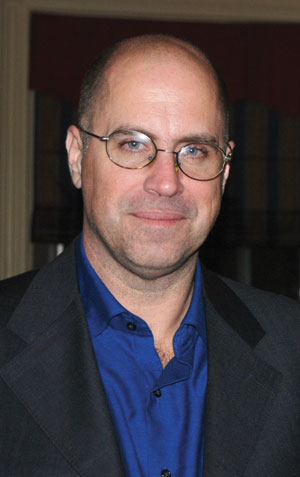OTTAWA Â- Ottawa defence lawyers are ready to go to court to get an inquiry into at least 100 autopsies performed by the former head forensic pathologist in eastern Ontario, after startling testimony that his work and findings had been questioned internally for more than a decade before he stepped aside last year.

Justice Stephen Goudge is currently leading an inquiry into Ontario pediatric forensic pathology. If he fails to recommend a formal review of Ottawa-area adult autopsies, the Defence Counsel Association of Ottawa is prepared to take chief coroner Bonita Porter to court in order to force the probe it wants, says association president Mark Ertel.
“We would ob-viously have to ask the chief coroner, and if the chief coroner refused to do it then we might have to take [her] to court and force them to do it,” he tells Law Times. “As an organization we’re prepared to
do that if we have to . . .
and where cases look suspicious, maybe they’re going to have to go further, maybe they might even wind up exhuming bodies.”
Long-standing concern within the province’s forensic pathology branch about autopsies by Dr. Brian Johnston, head of the eastern Ontario forensic pathology unit in Ottawa until January 2007, was revealed by Ontario’s former chief forensic pathologist during testimony at the Goudge inquiry.
Former chief pathologist David Chiasson disclosed that questions about Johnston’s work had, by February last year, reached such a point that former chief coroner Barry McLellan ordered autopsies for all of Ottawa’s criminally suspicious deaths and homicides to be done in Kingston or Toronto.
Forensic autopsies in criminal cases in Ottawa are expected to resume later this year.
When asked to compare the level of concern he felt over Johnston’s forensic work to that he felt over the work of pediatric forensic pathologist Dr. Charles Smith, Chiasson said his questions about Johnston’s autopsies began as early as 1995, and that, by 1998, he believed Johnston should have been replaced as director of the Ottawa unit - but not prevented from performing autopsy work entirely.
“There was just nobody, nobody to take up the slack,” Chiasson said, explaining why he believed Johnston should have continued performing autopsies even if he had been relieved of his director’s duties.
Chiasson testified he became personally involved in a review of a 1998 Johnston autopsy that resulted in an Ottawa man being jailed for 3½ months for a murder that never happened.
The man, a 28-year-old father named Michael Burns, was charged with second-degree murder in the death of a 40-year-old man, who was found dead in his own apartment.
Johnston ruled the man had been strangled to death, but Chiasson spoke to the police investigator, reviewed photographs, histological slides, and other evidence, and concluded the man had more likely died of “significant” coronary-artery disease, combined with a high level of methadone in his blood.
Burns, represented by high-profile Ottawa defence lawyer Lawrence Greenspon, sued Johnston and two police investigators for $770,000, after Johnston’s autopsy report had been overturned. A judge later dismissed the lawsuit and assessed damages to Burns at $25,000, on grounds there was no evidence of negligence, either by the police or by Johnston.
In another case, Johnston described a gun death as “close range,” while ruling out possible suicide, and said the shot came from a 12-gauge shotgun.
“The reference in the summary of findings that this is a single 12-gauge shotgun blast is clearly something that can’t be established by a pathologist examining a body,” Chiasson told the Goudge inquiry. He also questioned a passage in the same autopsy report in which Johnston characterized the victim as “a possible cocaine dealer and being treated for psychotic psychiatric illness.”
Chiasson estimated that Johnston would have performed between 250 and 300 autopsies a year during his decade as a forensic pathologist, and that 10 per cent of those would have been criminally suspicious, with five per cent being homicide. He said that, despite his efforts, he was not successful in attempts to remove Johnston.
Ertel says the figures and concern Chiasson disclosed suggest some of the autopsies Johnston performed could have resulted either in wrongful convictions or in acquittals of killers who should have been found guilty.
“Either one is possible,” he says. “You’ve got somebody doing work where precision is critical and doing a thorough job is critical.”
Porter would not discuss the controversy surrounding Johnson, who continues to perform non-criminal autopsies, and refused even to disclose how many autopsies were transferred to Kingston or Toronto from Ottawa over the past year.
“I can’t comment on it, because it is evidence that has been before the commissioner, and he may require more,” she says. “Anything that’s before the commission, I cannot comment.”
Porter confirmed, however, that neither the coroner’s office nor the forensic pathology office made a public announcement about transferring autopsies to the other cities.

 Justice Stephen Goudge is currently leading an inquiry into Ontario pediatric forensic pathology. If he fails to recommend a formal review of Ottawa-area adult autopsies, the Defence Counsel Association of Ottawa is prepared to take chief coroner Bonita Porter to court in order to force the probe it wants, says association president Mark Ertel.
Justice Stephen Goudge is currently leading an inquiry into Ontario pediatric forensic pathology. If he fails to recommend a formal review of Ottawa-area adult autopsies, the Defence Counsel Association of Ottawa is prepared to take chief coroner Bonita Porter to court in order to force the probe it wants, says association president Mark Ertel.